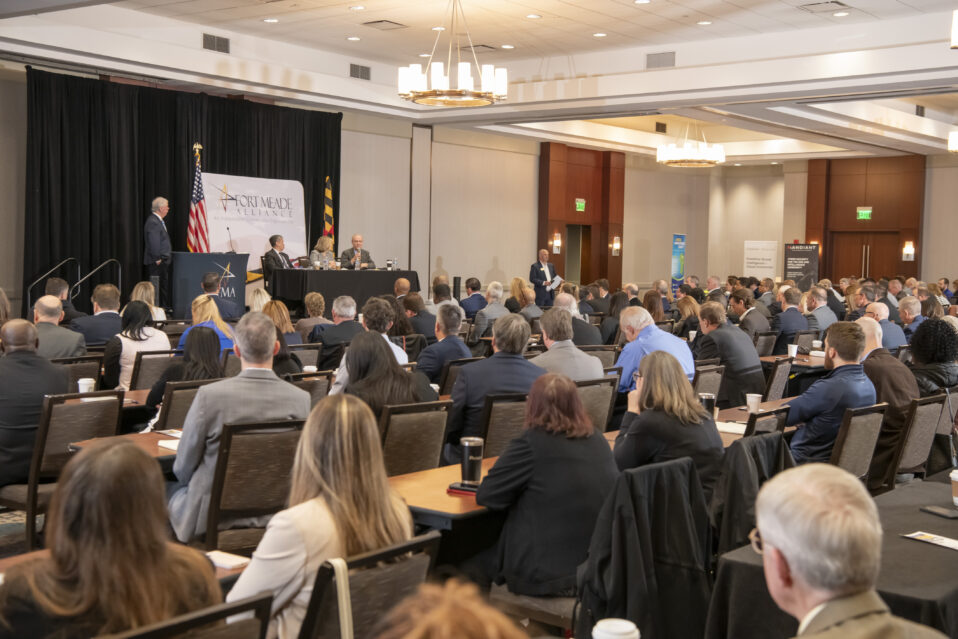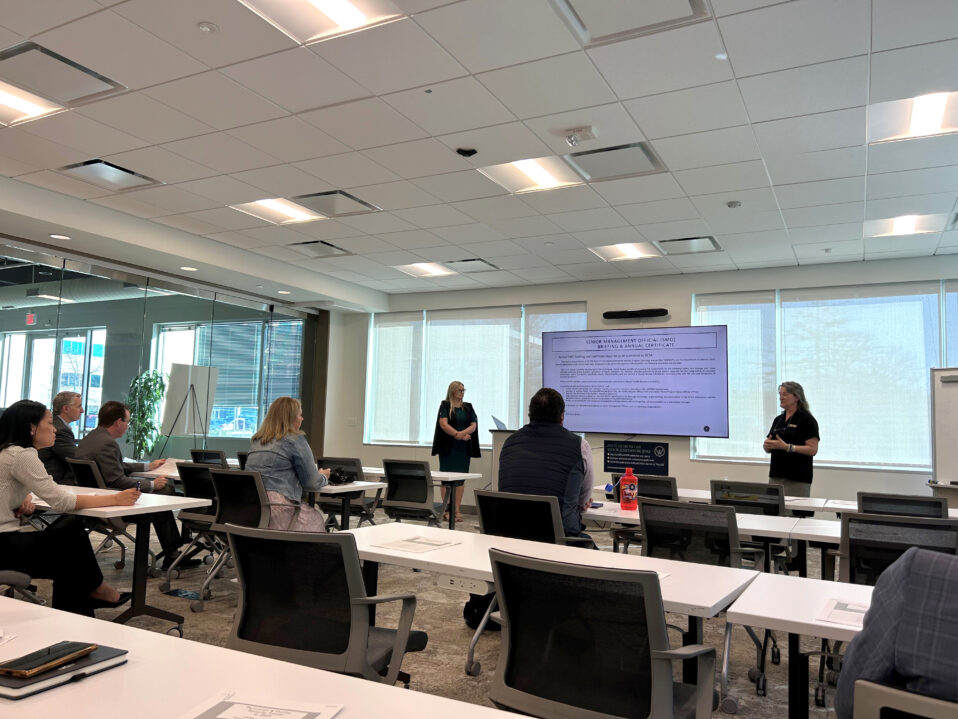 With the expansion of DefTech to the Fort Meade Region, government and industry officials are striving to help entrepreneurs license patented technologies from Department of Defense laboratories and transform them into commercial products.
With the expansion of DefTech to the Fort Meade Region, government and industry officials are striving to help entrepreneurs license patented technologies from Department of Defense laboratories and transform them into commercial products.
DefTech started as a pilot program at Aberdeen Proving Grounds barely 18 months ago. Initiated by the Maryland Department of Commerce, funded by a federal grant and equipped with a database of all patents registered by DoD labs in Maryland, the Maryland Defense Technology Commercialization Center (DefTech) set out to ease the challenges that commonly thwart commercialization of federal research.
Within six months, DefTech “showed so many soft successes and the potential for great successes” that it secured funds to expand into the Fort Detrick and Fort Meade regions, said Lisa Swoboda, Senior Director of Maryland’s Office of Military and Federal Affairs. That funding included a U.S. Department of Commerce Economic Development Administration grant of $750,000 plus another $750,000 from 11 new government and industry partners, including the Fort Meade Alliance.
DefTech has demonstrated several key strengths to date, Swoboda said. The center not only maintains a thorough patent database online (the product of an earlier technology transfer initiative in Southern Maryland), but it also helps entrepreneurs identify patents that complement their capabilities and business plans.
“Rather than entrepreneurs having to plow through thousands of patents, we will narrow it down to maybe half a dozen that they can then look at in more detail,” said DefTech Director Gary Evans.
DefTech can also help identify opportunities for private companies to advance their work by entering into Cooperative Research and Development Agreements (CRADAs) with DoD labs. Furthermore, it will help entrepreneurs learn how to navigate the complex process of licensing patented research and technologies, which can include challenges with securing funding, identifying lucrative markets, and satisfying federal requirements.
“Federal labs and Technology Transfer Offices (TTOs) have a statutory requirement of receiving from a potential licensee a very clear plan for how they are going to commercialize the patent. Some companies, often through lack of experience, find it difficult to put together a plan that really works as far as the Tech Transfer Office is concerned,” Evans said.
DefTech has also demonstrated abilities to help federal labs and TTOs manage their work regarding patents and CRADAs.
Simply establishing an office near, but outside of, Aberdeen Proving Grounds facilitated communications and education that was difficult when people were separated by a military fence, Swoboda said.
“Creating a space where you could have your small businesses and entrepreneurs interact with DoD scientists, engineers and tech transfer officers helped break down the visual and physical barrier of the gate and eased communications,” she said.
Promotion of DefTech’s services combined with its process of matching entrepreneurs to promising patents and CRADA opportunities helped TTOs which function on limited staff and resources, connect with new entrepreneurs. It also meant those entrepreneurs had been vetted to ensure they had core capabilities and complementary interests to the TTO.
Talks about expanding DefTech to Fort Meade began within months of the Aberdeen center opening. Representatives from the National Security Agency’s Technology Transfer Office approached the Maryland Department of Commerce about getting involved with DefTech and were “ecstatic” when plans emerged to expand DefTech to Fort Meade, Swoboda said.
“For Anne Arundel County, the opportunity to participate in this regional DefTech collaboration has come at a really opportune time,” said Rosa Cruz, Vice President of Communications for the Anne Arundel Economic Development Corporation (AAEDC).
AAEDC had developed a Tech Toolbox: a suite of services — including low-interest loans, workforce development programs and mentorship opportunities — to help technology companies establish and grow operations within the county. Cruz said DefTech augments those services both by serving as “a sherpa and an educator” to companies looking to license federal research and to federal labs by providing “a much bigger megaphone” to promote the technologies and research opportunities available through patents and CRADAs.
And those opportunities are extensive.
“Most people don’t realize that the overwhelming majority of military installations in Maryland are very R&D centric,” Swoboda said. “We have a wealth of technologies that are being developed in those labs, patented, cleared from classification and made available to businesses to commercialize.”
DefTech’s database of patents obtained by Maryland-based DoD labs currently tops 1,800.
Commercializing those patents is not a quick process. The first step of finding a company whose interests and capabilities complement a particular patent means that “we need to talk to a lot of companies to find that smaller group of potential matches” and “a lot of stars have to align” to complete a successful commercialization, Evans said.
But he added, “I have been very pleasantly surprised by the number of companies that are interested and willing to engage in that initial part of the process. It’s really encouraging. What it says to me is there is phenomenal capacity for this kind of activity within Maryland.”



